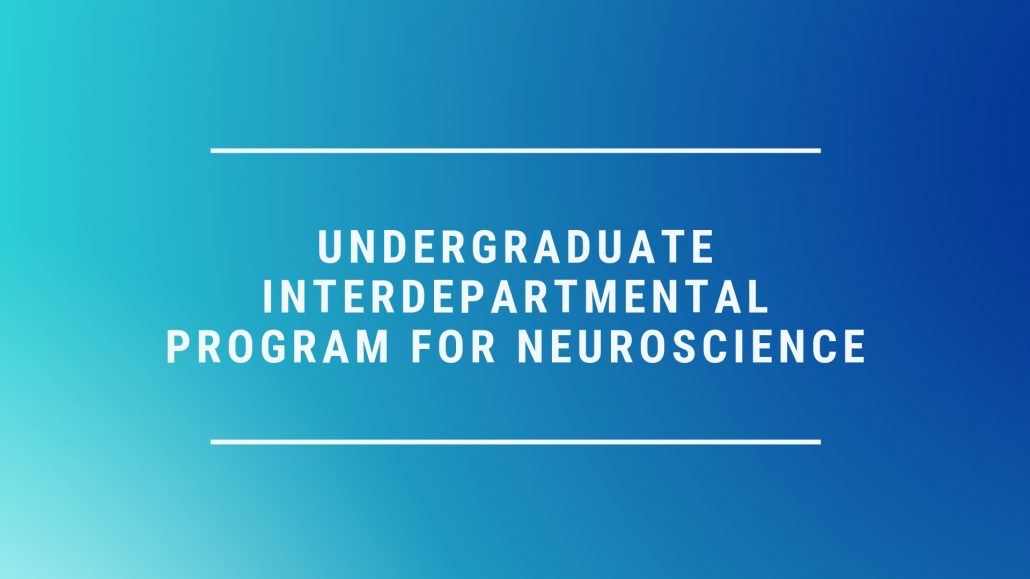
Program Goals and Expected Learning Outcomes
Neuroscience is the scientific study of the brain and nervous system, whose ultimate goal is to understand higher brain function at a variety of levels. The mission of the Undergraduate NSIDP is to provide students with current knowledge about brain structure and function from both a basic research and a clinical perspective, and to allow them to use this knowledge in completing independent or small-group capstone research projects. In the Neuroscience major, we invite students into an exploration of the nervous system on many different levels, from “Molecules to Mind.” Team-taught introductory courses provide a broad survey of nervous system construction and activity, while a variety of electives allow students to explore specific aspects of the brain and nervous system in greater detail. Students also have the opportunity to work with individual faculty members to engage directly in neuroscience research; many of our students have contributed significantly and substantially to independent research projects in faculty laboratories. Upon completion of the Neuroscience major, students should be able to:
- Define the molecular, cellular, and tissue-level organization of the central and peripheral nervous system
- Understand the properties of cells that make up the nervous system including the propagation of electrical signals used for cellular communication
- Relate the properties of individual cells to their function in organized neural circuits and systems
- Understand how the interaction of cells and neural circuits leads to higher level activities such as cognition and behavior
- Generate testable scientific hypotheses and develop research plans to test these hypotheses
- Evaluate and discuss primary research literature and evaluate the validity of hypotheses generated by others
- Work on research projects independently and in small group settings
- Communicate effectively orally and in writing
